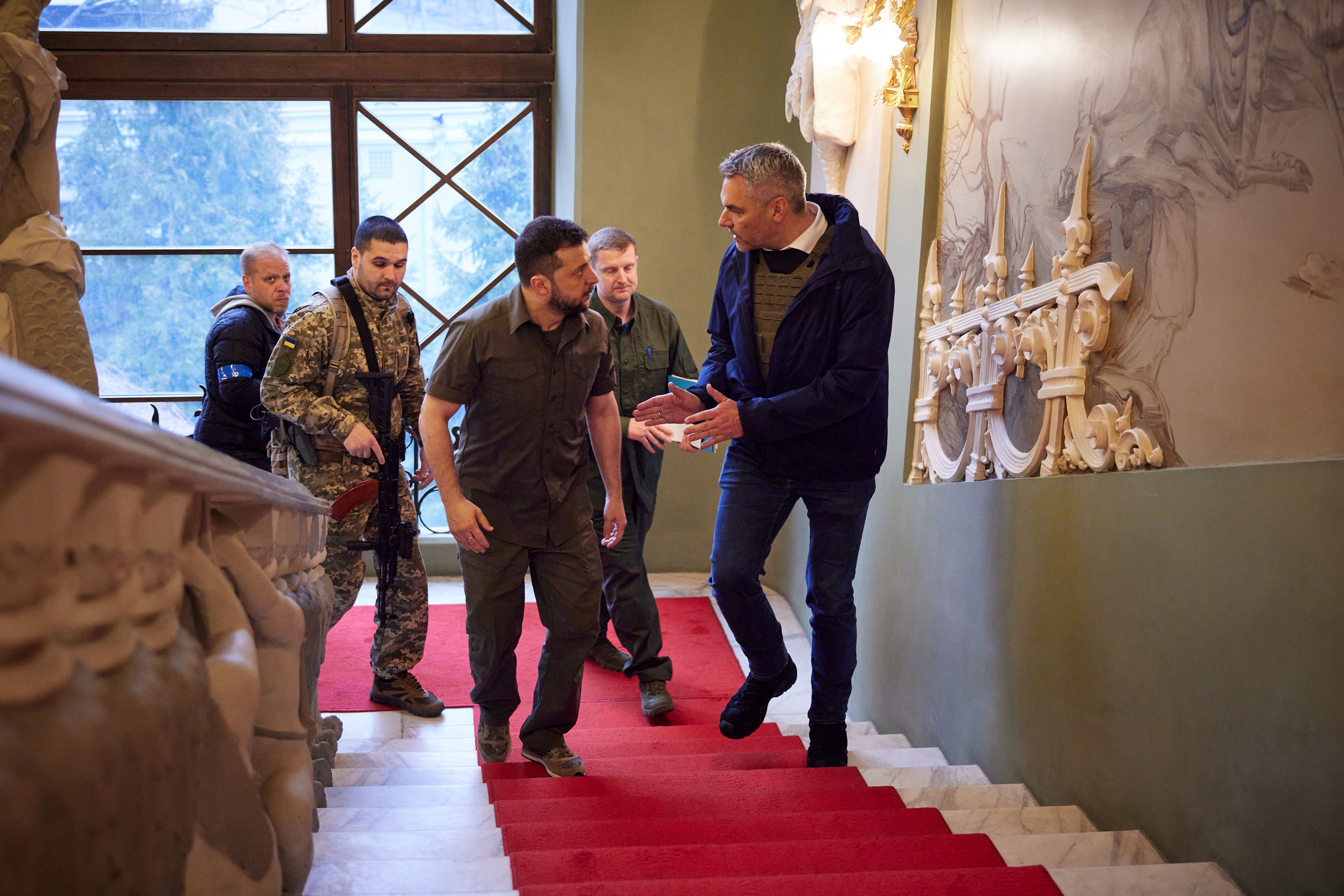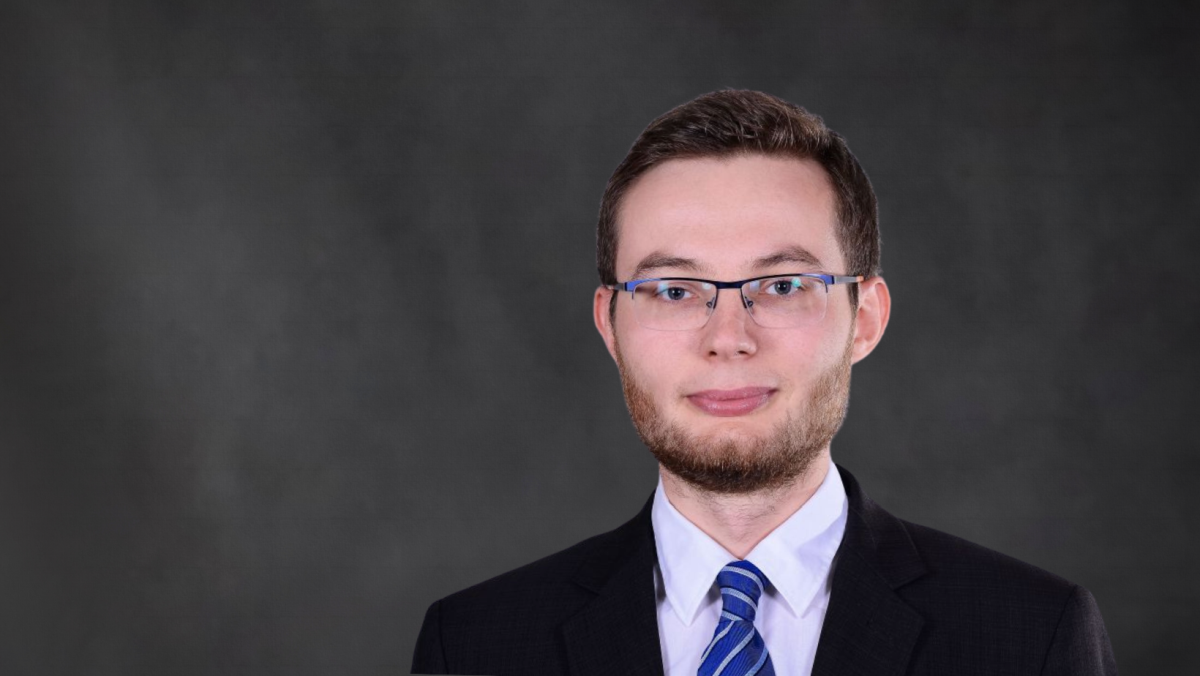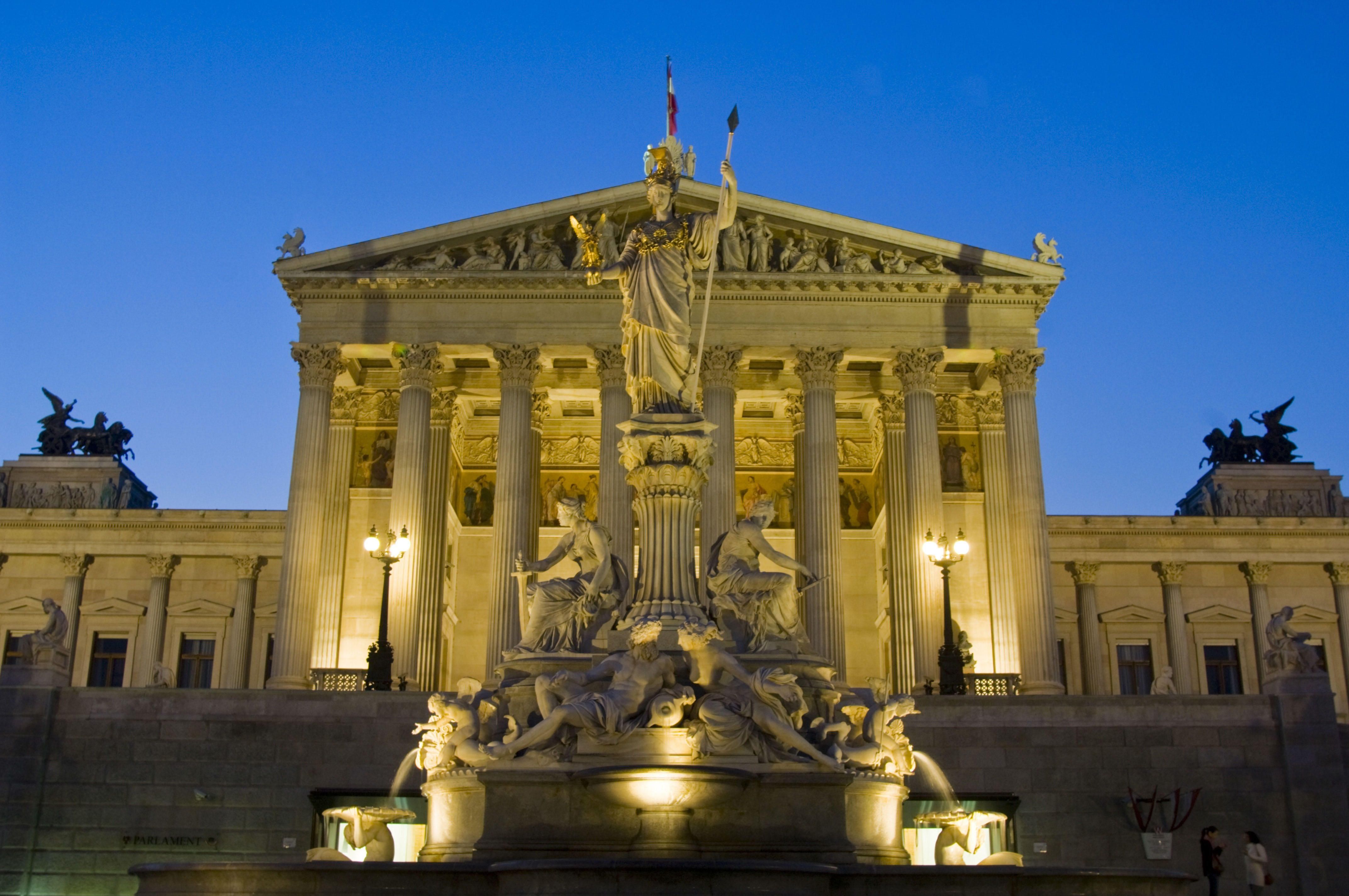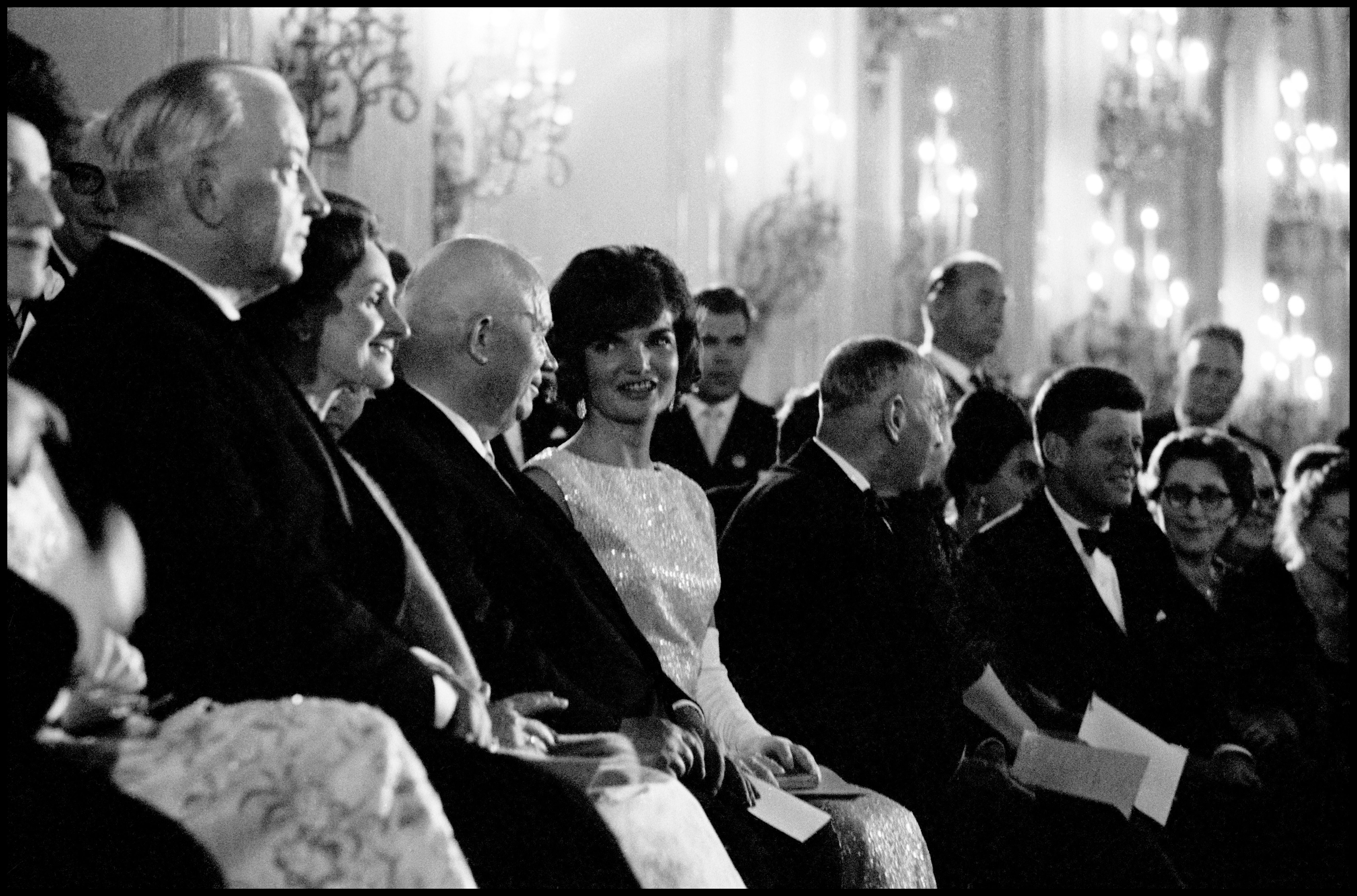Flexible Neutrality: Austria on the Russian Aggression Against Ukraine
In visits to Ukraine and Russia, Chancellor Karl Nehammer emphasised the neutral status of Austria, which is engaged in dialogue with the warring sides. The Austrian government’s status explains its lack of arms supplies to Ukraine, while Austria’s high level of dependence on energy resources from Russia explains its reluctance to impose the EU embargo on them. This position may change if the embargo is backed by other EU countries that are also reluctant to impose it.
 Ukrainian Presidential Press SER/ Reuters/Forum
Ukrainian Presidential Press SER/ Reuters/Forum
Reaction to the War.
Nehammer condemned Russia’s aggression and highlighted it as a violation of international law. Austria emphasises that a neutral state that mediates interstate disputes is acting legally. Nehammer classified the killings of civilians revealed in April in and around Bucha as a war crime and called for punishment. He visited this town and Kyiv on 9 April as a gesture of solidarity with Ukraine, following visits by other representatives of EU states and institutions, starting with trip by the prime ministers of Czechia, Poland, and Slovenia. In turn, in the meeting with Vladimir Putin at his residence in Novo-Ogariiv near Moscow two days later, Nehammer showed determination to conduct dialogue even at the expense of EU unity.
Austrian support for Ukraine so far has focused on humanitarian aid. At the beginning of February, during a visit to Ukraine by representatives of the Slavkov Triangle countries, Austrian Foreign Minister Alexander Schallenberg announced the transfer of €2.5 million to local Ukrainian aid organisations. An additional €10 million for Ukrainian refugees in Moldova was declared during a visit by Triangle ministers to Chișinău in early April. Nehammer has also called for relief for frontline states in the refugee crisis and said Austria will accept some of the refugees. He assured Polish Prime Minister Mateusz Morawiecki during bilateral consultations on 9 March that he was ready to provide such assistance. In turn, while visiting Ukraine, Nehammer offered 20 ambulances and 10 fire engines.
Neutrality and Russian-Austrian Political Dependencies.
Austria often explains its policy towards Russia through the context of neutrality. For example, criticism of the Russian authorities by the government of the centre-right Austrian People’s Party (ÖVP) and the Greens has been weakened by the refusal of the parliament’s presidium—where unanimity is needed—to consent to a speech by President Volodymyr Zelensky in the forum. An invitation to the Ukrainian leader was proposed by the opposition, liberal New Austria and Liberal Forum (NEOS). It is backed by the ruling parties and the Social Democratic Party of Austria (SPÖ), which had previously rejected the idea, but it is opposed by the far-right Freedom Party of Austria (FPÖ), citing the state’s neutrality. The Austrian government used the same argument when, following the assassination attempt on former Russian intelligence officer Sergei Skripal and his daughter, it did not expel Russian diplomats. Although Schallenberg, even after the discovery of the massacres in Bucha, ruled out that Russian diplomats would be considered persona non grata, on 7 April Austria—one of the last EU countries to do so—expelled four of them.
Austria, despite Russia’s annexation of Crimea and aggression in Donbas since 2014, has strengthened its relations with that country through visits at the highest level. Putin was welcomed in Vienna only four months after the forced takeover of the peninsula. He also went to Austria on his first foreign trip after being sworn in again in 2018. The strong business and social relations between the authorities of the two countries are evidenced by the appointments of former Austrian politicians to Russian state-owned companies. Although former chancellors’ reactions to the invasion of Ukraine included resignation from their positions with these firms, in particular Christian Kern from Russian Railways RZD and Wolfgang Schüssel from Lukoil, former Foreign Minister Karin Kneissl (Putin attended a wedding she hosted) still sits on the board of directors of Rosneft. The FPÖ, through which Kneissel received her ministerial appointment, is Austria’s most pro-Russia party. In 2016, it concluded a cooperation agreement with Putin’s United Russia party, and its openness to contacts with Russian oligarchs led to the collapse of Sebastian Kurz’s government in May 2019.
Energy and Economic Ties.
The limited reaction of Austria to the Russian aggression against Ukraine is also conditioned by its close energy ties. Austria imports as much as 80% of the gas it consumes from Russia (compared to the EU average of 45%). Vice-Chancellor Werner Kogler from the Green party criticised the country’s high level of dependence on Russia, which was reflected in the participation of the Austrian OMV in the construction of the Nord Stream 2 gas pipeline. The Austrian authorities are not actively looking for other sources of supply, however. Austria’s policy towards Russia since the invasion has been limited to refusing to settle gas contracts in roubles.
Before the invasion, Russia was one of the 10-largest sales markets for Austrian companies, with exports in 2020 amounting to €800 million. In 2020, direct Russian investments in Austria were the second-largest (after German input) and amounted to €21.4 billion. The Polish has government appealed to the Austrian authorities for radical sanctions against Russian oligarchs, but which so far has not been answered by the Nehammer cabinet. Austria has backed the EU sanctions against Russia, including the exclusion of Russian banks from the SWIFT system. This approach is due in part to the coalition agreement of 2020 binding the government’s position on this issue with the decisions of other EU countries.
Changes in Security Policy.
Austria’s internationally recognised neutrality is not questioned in its internal debate, despite the Russo-Ukrainian war. The reason for this is includes the high public support for such status—polling showed 91% at the beginning of March—and no perception of a direct threat from Russia. Therefore, unlike Finland and Sweden, which are considering joining NATO, Austria is not planning similar steps. According to a mid-March poll, only 17% of Austrians are in favour of joining the Alliance compared to 64% against. This is the consequence of the public’s interpretation of neutrality, which boils down to staying outside military alliances, not having a foreign base on its territory, and refraining from delivering weapons to areas of hostilities. However, this approach does not preclude the development of multilateral security cooperation, manifested by Austria’s participation in eight out of 60 projects in the EU’s permanent structured cooperation in the field of defence (PESCO). In the context of Russia’s attack on Ukraine, Nehammer cited security guarantees under Art. 42 Sec. 7 of the Treaty on the Functioning of the EU. The government has also declared it will increase defence spending from 0.6% to 1.5% within five years and will deepen cooperation in the EU.
Citing its neutrality, the Austrian authorities also have ruled out direct arms supplies to Ukraine. However, the country has given the Ukrainians about 10,000 battle helmets and 9,000 pieces of body armour. At the same time, while abstaining from the vote, Austria de facto supported sending military aid to Ukraine under the European Peace Facility. It also has allowed the transit of weapons through its territory from NATO countries, which distinguishes it from Hungary, which so far is refusing such assistance.
Conclusions and Perspectives.
Russia’s invasion of Ukraine significantly weakens the effectiveness of Austria’s policy as a neutral intermediary between Western countries and Russia. It also has confirmed the differences between the parties, for example, from the FPÖ that cultivates good relations with Russia, to the NEOS and the Greens, which are sceptical of Russia.
Austria’s reaction to the Russian invasion of Ukraine does not signify a break with its neutrality, which is part of the national identity. Although the war has intensified the Austrian neutrality debate, its specificity will not change and this status will continue to be instrumentally used by the authorities and political parties to justify the decisions taken. Austria, under pressure from the war, is reviewing its approach to defence. It will increase expenditures and declares an intensification of multilateral cooperation in this area.
The Nehammer government remains a partner that is hardened on imposing energy sanctions on Russia. Austria’s reaction has been largely influenced by the current close relations with Russia as well as its energy and business ties. According to the Austrian authorities, the long-term deepening dependence on supplies from Gazprom has made its economy unable to immediately stop gas imports from Russia. They could stop their opposition to such sanctions provided that other states that are also reluctant to do so—mainly Germany—support it. In addition to taking advantage of opportunities such as meetings of the heads of government, Poland could use multi-level and cross-party contacts, especially given the differences within the ÖVP-Greens coalition in response to the Russian invasion. On the other hand, thanks to its involvement in support for management of the Ukrainian refugee crisis in Europe, Austria is a valuable partner in providing support to the frontline states, including Poland.





